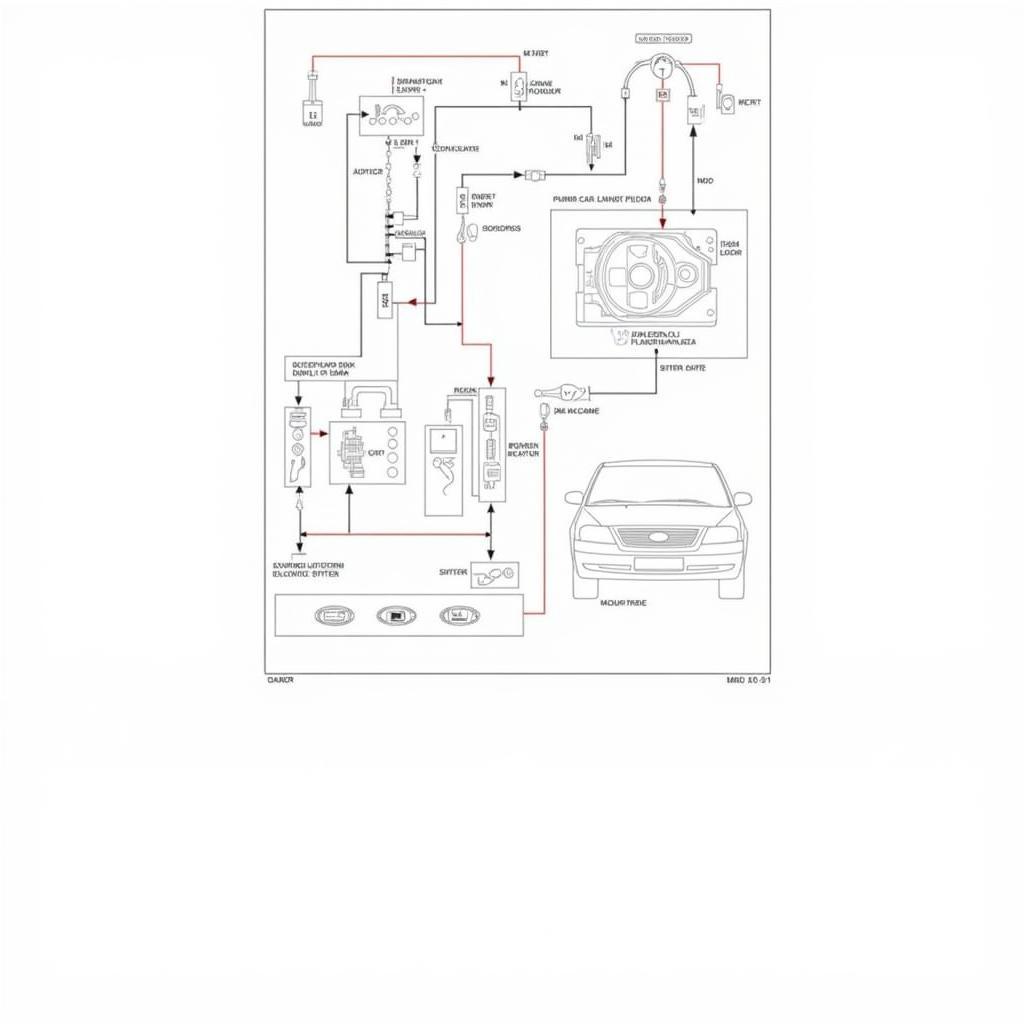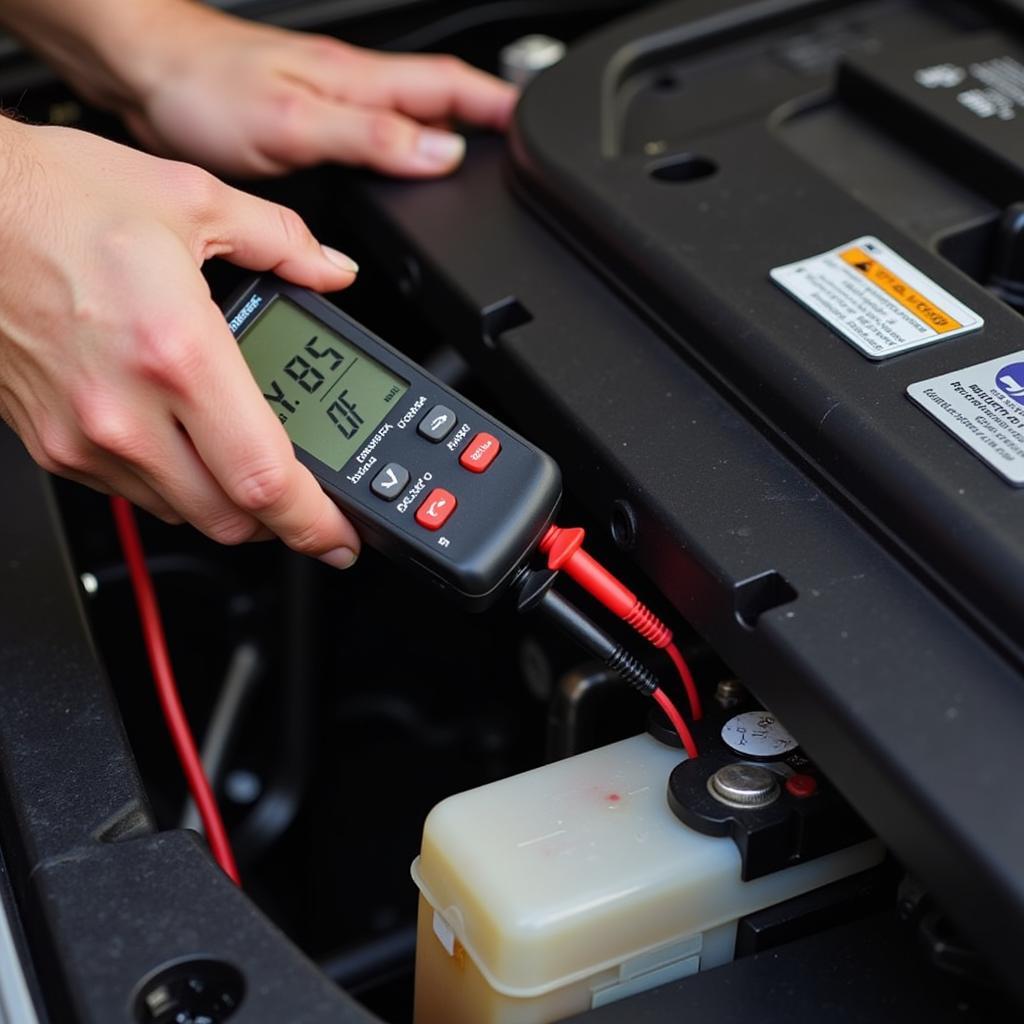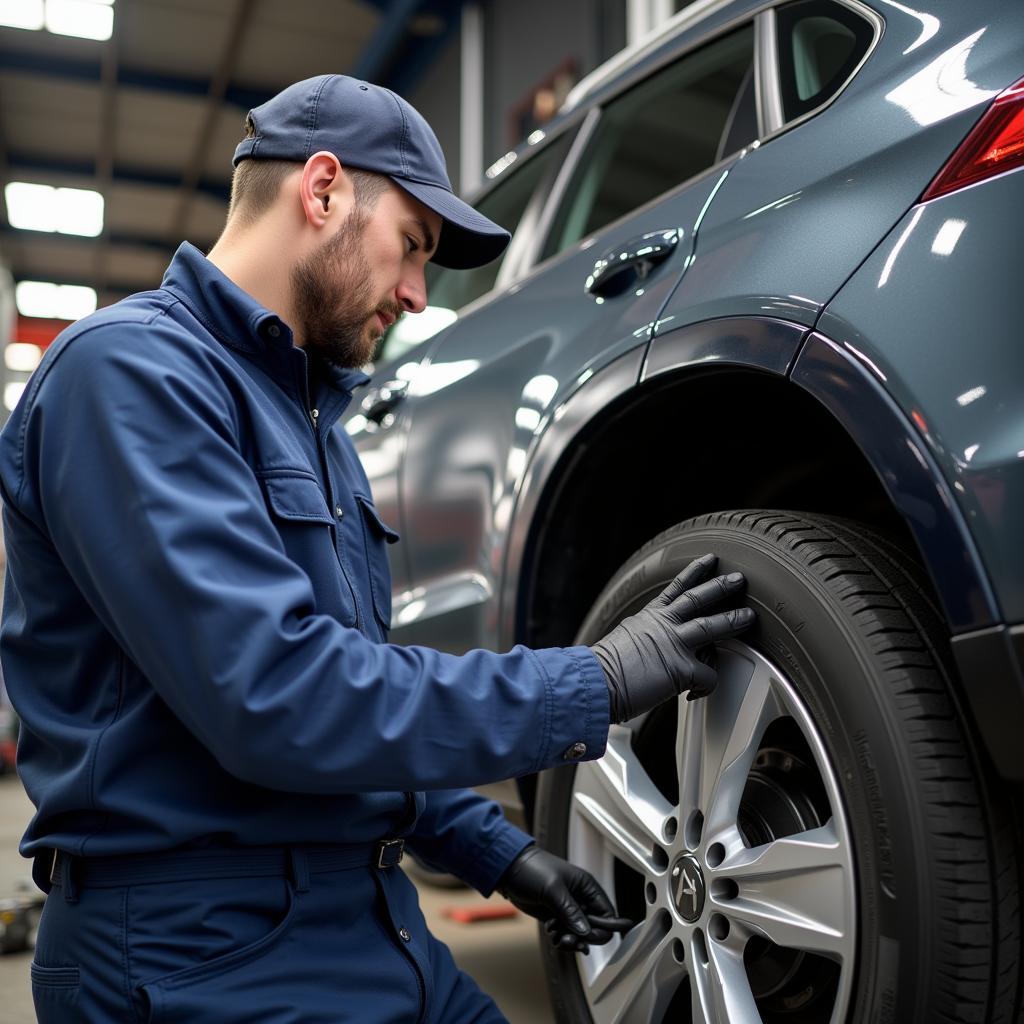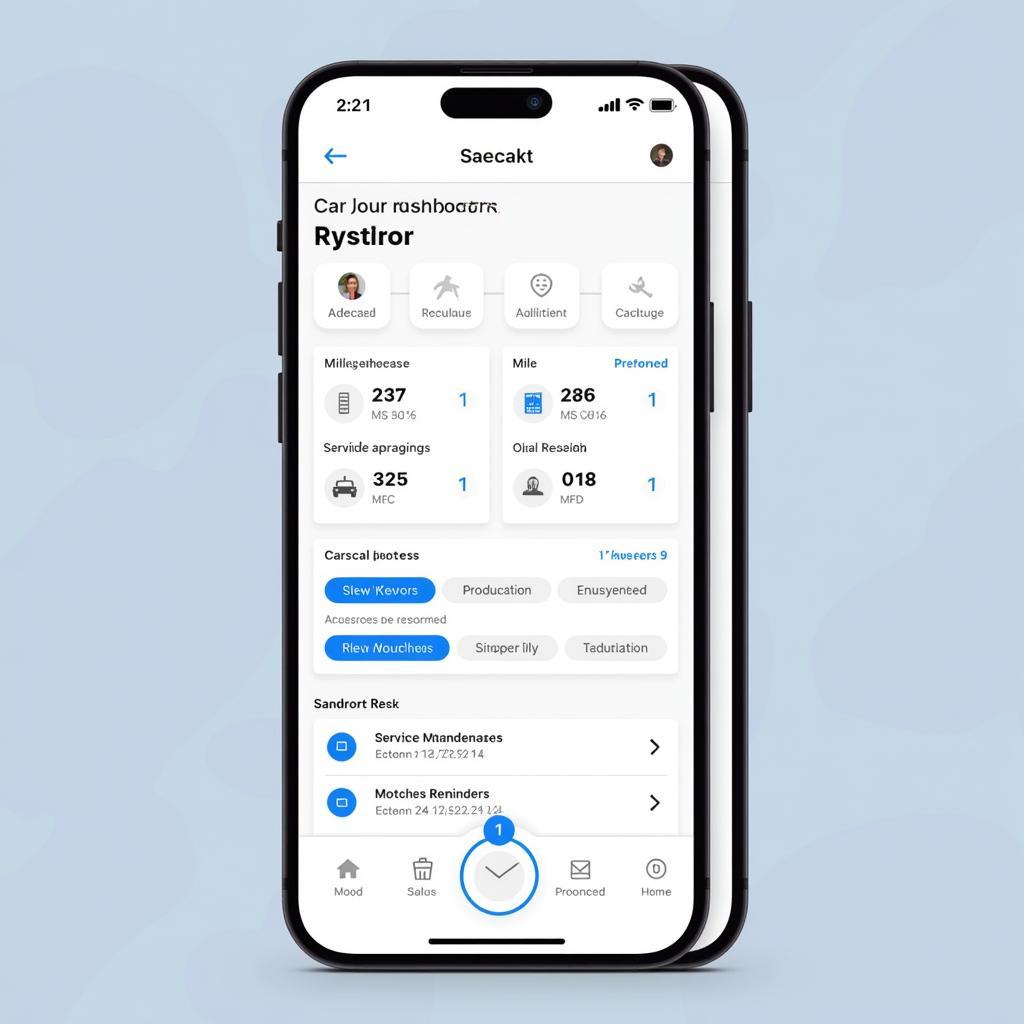Electrical problems are a common headache for car owners. Whether it’s a flickering headlight, a dead battery, or a complete electrical system failure, these issues can be frustrating and sometimes even dangerous. This guide will help you understand, troubleshoot, and potentially fix some common electrical problems in your vehicle.
If your car is experiencing starting problems, it might be due to an electrical fault. Sometimes, seemingly unrelated issues like rust can also indirectly impact the electrical system. Check out this helpful resource on cars with rust problems.
Common Electrical Problems in Cars
A car’s electrical system is complex, encompassing everything from the battery and alternator to the lights, radio, and various sensors. A problem in any one component can affect the entire system. Some common electrical problems include:
- Dim or flickering headlights: This could indicate a failing alternator, a loose connection, or a problem with the headlight bulbs themselves.
- Dead battery: While a dead battery can be a simple fix, it can also be a symptom of a larger issue like a parasitic drain, where a component continues to draw power even when the car is off.
- Malfunctioning power windows or locks: Faulty switches, blown fuses, or wiring problems can cause power windows and locks to malfunction.
- Starting problems: A clicking sound when turning the key might indicate a weak or dead battery, a faulty starter motor, or a bad ignition switch.
- Dashboard warning lights: Pay attention to any warning lights on your dashboard, as they can indicate a specific electrical problem.
 Car Electrical System Diagram
Car Electrical System Diagram
Diagnosing Electrical Problems
Diagnosing electrical problems often requires a systematic approach. Knowing how to duplicate a car problem is crucial for effective troubleshooting. Here’s a step-by-step guide:
- Check the battery: Use a multimeter to test the battery voltage. A fully charged battery should read around 12.6 volts.
- Inspect the alternator: The alternator charges the battery while the engine is running. A faulty alternator can lead to a dead battery.
- Check fuses and relays: A blown fuse or a faulty relay can interrupt the flow of electricity to specific components.
- Inspect wiring and connections: Look for loose, corroded, or damaged wires and connections.
- Use a diagnostic scanner: A diagnostic scanner can read trouble codes stored in the car’s computer, helping pinpoint the source of the problem.
 Checking Car Battery Voltage
Checking Car Battery Voltage
“A common mistake people make is assuming a dead battery is simply a bad battery. Always check the alternator and look for parasitic drains before replacing the battery,” advises John Smith, Automotive Electrical Engineer at Advanced Auto Solutions.
DIY Fixes for Minor Electrical Problems
Some minor electrical problems can be fixed at home with basic tools and knowledge. For example, replacing a blown fuse or cleaning a corroded battery terminal is a relatively simple task. However, for more complex issues, it’s best to consult a qualified mechanic.
If your car won’t start, there are a few common culprits to investigate. You can find a helpful guide on common car not starting problems. If you need a comprehensive guide on car problem diagnosis, check out this resource.
When to Seek Professional Help
While some electrical issues are simple to fix, others require specialized tools and expertise. If you’re uncomfortable working on your car’s electrical system, it’s always best to seek professional help. Signs you need professional help include:
- Complex electrical problems: If the problem involves multiple components or requires advanced diagnostic tools, it’s best to leave it to the professionals.
- Safety concerns: Working on electrical systems can be dangerous if you’re not familiar with the proper procedures.
- Lack of experience: If you’re not comfortable working with electricity, it’s best to avoid DIY repairs.
“Electrical problems can be tricky to diagnose and repair. Don’t hesitate to seek professional help if you’re unsure about anything. It’s better to be safe than sorry,” recommends Maria Garcia, Senior Technician at Auto Electric Specialists.
Conclusion
Dealing with electrical problems in your car can be a daunting task. However, by understanding the common issues, following a systematic diagnostic approach, and knowing when to seek professional help, you can get your car back on the road quickly and safely. Remember, if you’re ever unsure about anything related to your car’s electrical system, don’t hesitate to contact us at AutoTipPro for assistance. My car is having problems starting is a common concern, and we’re here to help. Call us at +1 (641) 206-8880 or visit our office at 500 N St Mary’s St, San Antonio, TX 78205, United States.






Leave a Reply